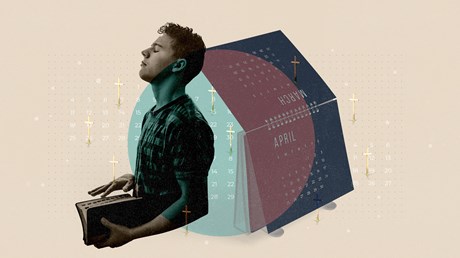Setting Sundays aside for joy infuses our grief with some glory.

The season of Lent provides a rich time of confession and prayer and is often accompanied by fasting from food or other indulgences. I didn’t grow up observing Lent, but as I’ve learned more about the church calendar, I’ve grown to appreciate the practices that bring meaning and depth to the journey toward Easter.
Lent is modeled after the 40 days Jesus spent fasting in the desert before being tempted by the devil (Matt. 4:2). In actuality, however, Lent lasts longer than 40 days because Sundays are not included. Sunday is always the day of Resurrection, calling for feasting rather than fasting. Sundays during Lent are thus often referred to as “little Easters,” interruptions of sheer joy on the longer and more sober 40-day journey. Little Easters provide small but glorious fueling stations on our way to Resurrection Day.
As Saint Augustine said of these Sundays in Lent, “fasting is set aside and prayers are said standing, as a sign of the Resurrection, which is also why the Alleluia is sung on every Sunday.”
As I have learned about these small, celebratory interludes during the typical pattern of Lent, I’ve wondered if they could be a model for other long-enduring times of sacrifice. Claiming small, joyous moments, even when living in the serious reality of the present, keeps in our minds the whole story of God. Little Easters along the way provide for us strength to press on.
The reality of suffering
Not all who observe Lent break their fast on Sundays. Even small moments of feasting during such a serious season can feel scandalous. Similarly, in other serious times of life, small moments of joy can seem inappropriate. Any celebration risks dismissing the gravity of hardship at ...
from Christianity Today Magazine
via


.gif)

.gif)
.gif)
